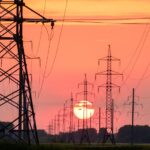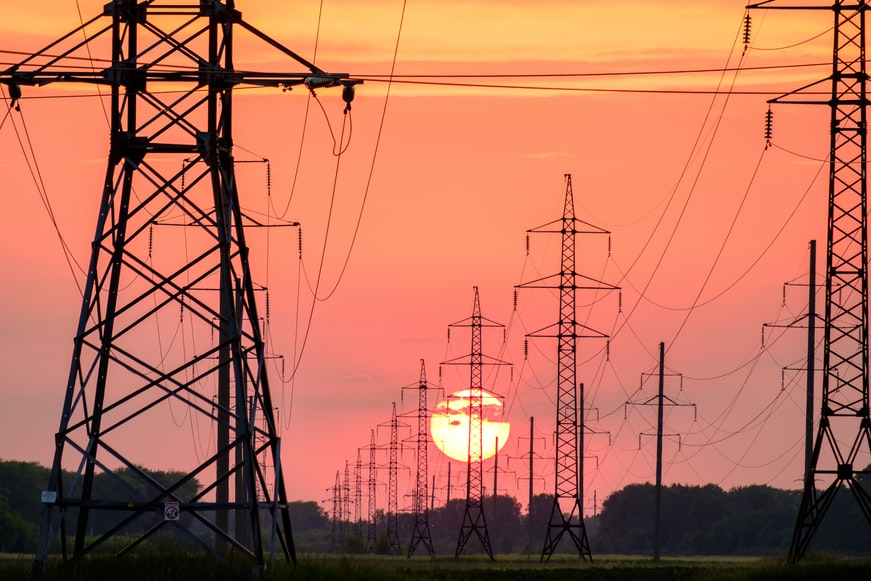A billion people in blackout: here are the risks of next summer


Electric grids around the world will not produce enough electricity to meet rising demand this summer, threatening more than a billion people with blackouts . Grids are being challenged by fossil fuel shortages, droughts and heat waves, raw material disruptions and price hikes due to the war in Ukraine, as well as the failure of the green energy transition, in which operators network have withdrawn too many fossil fuel generation plants. Combining all of this, a perfect blackout storm threatens much of the Northern Hemisphere.
The energy crisis, which affects a large slice of the world and the main economies, could come less than a month from the beginning of the summer, on 21 June. Regions of concern to Bloomberg are Asia, Europe and the United States, where there isn't enough energy to distribute when cooling demand is set to rise as households increase air conditioning to escape the heat. suffocating.
The heatwave in Asia has caused daily blackouts of hours on end, putting more than 1 billion people at risk in Pakistan, Myanmar, Sri Lanka and India, with little improvement in sight . Earlier this month, six Texas power plants failed as summer heat began to take hold, offering a preview of what's to come. At least a dozen US states, from California to the Great Lakes, are at risk of a power outage this summer. Electricity supplies will be limited in China and Japan. South Africa is poised to experience a record year of power outages. Europe is in a precarious position, held in place by Russia: if Moscow cuts off the supply of natural gas to the region, power outages could occur in some countries. – Bloomberg
BloombergNEF analyst Shantanu Jaiswal says the combination of "war and sanctions" disrupting commodity markets, "extreme weather conditions" and "an economic rebound from COVID that increases energy demand" is a situation " only one ”that“ can't remember ”the last time there was a“ confluence of so many factors ”. As we noted at the outset, this is a perfect storm of factors.
The US is in the lead among countries at risk of blackouts, as half a country at risk of power outages. The reason is to be found in the lack of electricity production and in the drought that has emptied the reservoirs.
The fragility of the world's electricity grids is due to the lack of investment in fossil fuels and the reduction of fossil fuel power plants in an attempt to switch to cleaner and greener energy sources.
Alex Whitworth, an analyst at Wood Mackenzie Ltd, points out that as grids transition to green energy, the lack of storage batteries when the sun is not shining or the wind is not blowing will create instability and increased stress on grids at a time when which fossil fuel plants are being phased out at a rapid pace.
"Whenever there are clouds or storms or a wind drought for a week there will be a supply problem," Whitworth said. "We expect these problems to get worse over the next five years."
Bloomberg provides a snapshot of the most strained networks that could cause massive blackouts this summer:
THE UNITED STATES
Supplies of natural gas, the number one fuel for power plants in the United States, are limited nationwide and prices are rising. According to the North American Electric Reliability Corporation, electricity in much of the country and parts of Canada will be under pressure. This is one of the most disastrous assessments of the regulator. Consumers will be asked to help keep electricity grids stable by reducing consumption.
In California, the most populous state, gas supplies are further reduced due to the rupture of a pipeline last year that limited imports. Additionally, climate change is fueling drought, severely limiting hydropower supplies. The California Independent System Operator said this month that the state could be at risk of a blackout for the coming summers due to extreme weather conditions.
On the 15-state network operated by the Midcontinent Independent System Operator (MISO), consumers in 11 states are at risk of disruption. MISO, which serves some 42 million people, has predicted that it will have "insufficient" energy production to meet peak demand this summer, especially in the Midwestern states. The network never gave such a warning before the summer demand started.
In Texas, the network "is still at risk" of shortages, despite the state's attempt to improve resilience after the February 2021 winter storm that left millions in the dark for days, said Gary Cunningham, director of research at Tradition Energy broker market.
Aging infrastructure and delays in maintenance during the pandemic added to the problems of a colder climate, said Teri Viswanath, chief economist for electricity, energy and water at CoBank ACB.
"The United States is experiencing more disruptions globally than any other industrialized nation," he said. "About 70% of our network is nearing the end of its life cycle."
ASIA
The epicenter of the outages so far has been South and Southeast Asia, where brutal heat waves have put air conditioners into operation. In Pakistan, Sri Lanka and Myanmar, where a total of 300 million people live, the blackouts have been practically national. In India, 16 of the country's 28 states – home to more than 700 million people – have been struggling with interruptions of two to 10 hours a day, a state official said this month.
The Indian government recently ordered companies to increase the purchase of expensive foreign coal and to reduce environmental protocols for mining expansion to try to increase the supply of fuel. But whether these moves will ease the tension remains to be seen. The upcoming monsoon season is expected to bring cooler temperatures and reduce energy demand, but it can also flood mining regions and hinder fuel supplies.
In Vietnam, the state-owned company has been bracing for an electricity shortage for more than a month, as demand increases while domestic coal supply has declined and imported fuel costs have risen.
In China, where coal shortages led to widespread power outages last year, officials promised to keep the lights on in 2022 and pressured miners to increase production to a record high. However, industry officials have warned that this summer the energy situation will be difficult in the heavily industrialized south of the country, far from inland mining centers, which therefore depends more on expensive foreign coal and gas.
Japan had an energy crisis in March, when a cold spell triggered a surge in demand just days after an earthquake knocked out several coal and gas plants. Electricity supply is expected to be scarce during the next summer months and, according to the grid's forecasts, demand will likely exceed supply next winter as well. The Tokyo Metropolitan Government has launched an energy saving campaign, asking residents to take measures such as watching less television.
EUROPE
The risk of blackouts is lower in Europe, as fewer people use air conditioning in their homes. The continent is also rushing to refill its gas deposits.
But there is little room for errors. A dry spring in Norway limited hydropower supplies. Adding pressure to prices and supplies are the prolonged shutdowns of Electricite de France SA's nuclear reactors. The largest producer in the region has cut its nuclear production target for the third time this year, the latest sign of the worsening of the European energy crisis.
According to Fabian Ronningen, an energy market analyst at Rystad Energy, if Russia were to cut off natural gas supplies to the region, that could be enough to trigger blackouts in some countries.
Although he said the chances of Russia making such a bold move are "unlikely", his views have grown more pessimistic as the war in Ukraine continued; two months ago, he said, he would evaluate the "highly unlikely" possibilities. The conflict changed everything, putting Europe's electricity grids at risk.

Thanks to our Telegram channel you can stay updated on the publication of new articles of Economic Scenarios.
The article A billion people in blackout: here are the risks of next summer comes from ScenariEconomici.it .
This is a machine translation of a post published on Scenari Economici at the URL https://scenarieconomici.it/un-miliardo-di-persone-in-blackout-ecco-i-rischi-della-prossima-estate/ on Wed, 25 May 2022 08:00:38 +0000.
